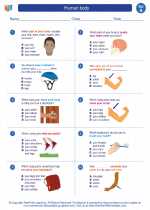What is the Urethra?
The urethra is a tube-like structure in the body that carries urine from the bladder to the outside of the body. It is a part of the urinary system and plays a vital role in the process of urination.
Anatomy of the Urethra
The urethra is different in males and females. In males, the urethra serves a dual purpose - it carries both urine and semen. It is divided into three parts: the prostatic urethra, the membranous urethra, and the spongy or penile urethra. In females, the urethra is shorter and only carries urine from the bladder to the outside of the body.
Function of the Urethra
The main function of the urethra is to expel urine from the body. When the bladder is full, the muscles around the urethra relax, allowing urine to flow out through the urethral opening. The urethral sphincter, a circular muscle, helps control the flow of urine by opening and closing the urethral opening.
Common Urethral Conditions
Some common conditions that can affect the urethra include urinary tract infections (UTIs), urethral strictures (narrowing of the urethra), and urethritis (inflammation of the urethra). These conditions can cause discomfort and difficulty in urination.
Study Guide
- What is the function of the urethra?
- Describe the anatomy of the male urethra.
- How does the urethral sphincter control the flow of urine?
- What are some common conditions that can affect the urethra?
[Urethra] Related Worksheets and Study Guides:
.◂Science Worksheets and Study Guides First Grade. Human body

 Activity Lesson
Activity Lesson
 Worksheet/Answer key
Worksheet/Answer key
 Worksheet/Answer key
Worksheet/Answer key
 Worksheet/Answer key
Worksheet/Answer key
 Worksheet/Answer key
Worksheet/Answer key
 Worksheet/Answer key
Worksheet/Answer key
 Worksheet/Answer key
Worksheet/Answer key
 Vocabulary/Answer key
Vocabulary/Answer key
 Vocabulary/Answer key
Vocabulary/Answer key
